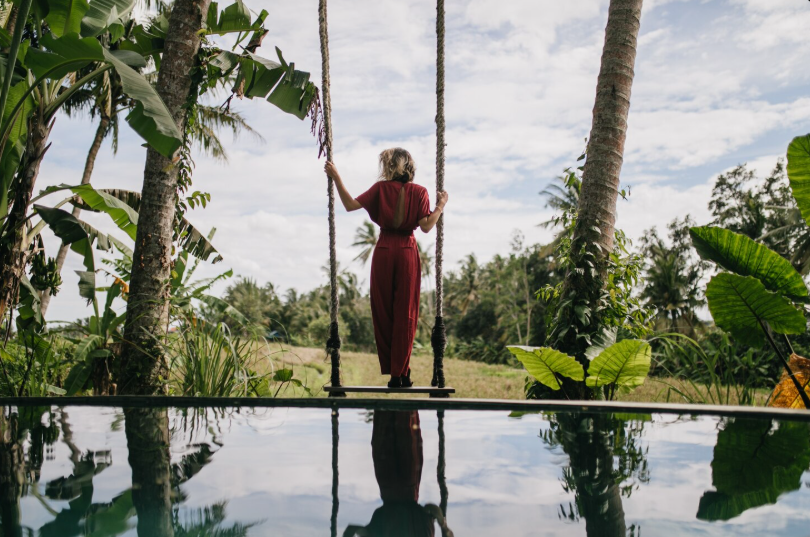Ultra-Luxury Eco Retreats: Sustainable Travel in Style
Introduction
Ultra-luxury eco retreats represent a thoughtful evolution of travel, marrying the highest standards of comfort and service with rigorous environmental stewardship. For leaders and discerning travelers who expect excellence without compromise, these retreats offer an experience that is both indulgent and responsible. Rather than treating sustainability as an afterthought, top-tier eco properties weave conservation, community engagement, and regenerative practices into every element of the guest experience.
What Defines an Ultra-Luxury Eco Retreat?
At its best, an ultra-luxury eco retreat combines five core attributes: exceptional design, locally sourced gastronomy, measurable environmental impact reduction, meaningful local partnerships, and personalized service. Architectural choices favor low-impact materials and passive design techniques that reduce energy demand. Guest villas and common areas are crafted from reclaimed or responsibly harvested materials, while landscaping protects native habitats and prioritizes biodiversity. These retreats typically operate on robust sustainability metrics—such as water recycling rates, renewable energy generation, and zero-waste goals—documented and shared with guests.
Design, Comfort, and Environmental Elegance
Luxury does not require excess when design is intelligent. Ultra-luxury eco retreats rely on bespoke design to amplify comfort while minimizing ecological footprint. Lightweight, modular structures can be sited to avoid tree removal and preserve natural drainage. Large operable windows and cross-ventilation reduce or eliminate the need for air-conditioning, while thermal mass and shading stabilize interior temperatures. High-end materials like polished reclaimed teak, natural stone, and organic textiles create a refined aesthetic that feels authentic and timeless rather than manufactured.
Cuisine and Sourcing: A Conscience on the Plate
Culinary programs at eco retreats are often a signature feature. Michelin-trained or locally renowned chefs develop menus that foreground seasonal, hyper-local ingredients—frequently sourced from on-site gardens, coastal fisheries with sustainable certifications, and local farmers practicing regenerative agriculture. These kitchens emphasize whole-ingredient cooking, minimal waste, and creative preservation techniques. Guests enjoy tasting menus that read as both a celebration of place and a demonstration of how luxury dining can be circular and low-impact.
Regenerative Practices and Measurable Impact
True leadership in sustainable travel means going beyond “do no harm.” Regenerative retreats actively restore ecosystems through reforestation, mangrove rehabilitation, coral nurseries, or soil regeneration projects. Many properties partner with scientists and NGOs to quantify outcomes—measuring carbon sequestration, increases in native species, and water table recovery. Transparent reporting and third-party certifications (where available) give executives and conscious travelers confidence that their stay contributes to positive environmental outcomes.
Community Partnership and Cultural Respect
Ultra-luxury eco retreats place community relationships at the center of their operating model. They create local employment pathways, invest in skill-building and hospitality training, and prioritize sourcing from nearby producers. Cultural programming—guided by local elders, artisans, or cultural custodians—provides guests with authentic insights while ensuring intellectual and economic benefit accrues to host communities. These collaborations preserve local knowledge systems rather than appropriating them, and create long-term social value beyond the guest experience.
Personalized Wellness and Curated Experiences
Beyond environmental credentials, these retreats cultivate bespoke guest experiences that are restorative and exclusive. Wellness offerings may include integrative medical consultations, private spa treatments using locally derived botanicals, mindful movement classes, and nutrition programs aligned with local foods. Activities are curated to deepen connection with place: guided ecology walks, private conservation excursions, night-sky astronomy sessions, and hands-on workshops with local craftsmen or chefs. Privacy and personalization—private chefs, dedicated hosts, and flexible itineraries—define the ultra-luxury standard.
How to Evaluate a Property
When selecting an ultra-luxury eco retreat, executives should ask targeted questions: What percentage of the property’s energy is derived from renewables? How is water reused and conserved? What measurable conservation outcomes has the property achieved? Are local communities active partners in programming and revenue sharing? Does the retreat disclose a sustainability report or third-party verification? High-quality operators will welcome scrutiny and provide clear, documented answers.
Travel Considerations and Responsible Luxury
The very nature of travel entails carbon and resource use, which means responsible travelers should weigh how to reduce impact alongside the benefits of investing in sustainable tourism models. Consider consolidating trips, choosing direct flights where possible, and engaging in meaningful activities that support conservation and community development. Many ultra-luxury eco retreats offer carbon offset programs tied directly to verified regenerative projects, giving guests an option to balance unavoidable emissions with measurable impact.
Who Benefits Most from These Retreats?
Ultra-luxury eco retreats are well suited to leaders, families, and small executive groups seeking privacy, bespoke service, and an immersive connection to place. They are an excellent option for corporate retreats centered on wellbeing and creativity, as well as for families and individuals who wish to travel in a way that aligns with a values-driven lifestyle. For directors and executives, these stays can also double as relationship-building opportunities—private dining, exclusive access to conservation projects, and curated cultural exchanges make them ideal for hosting clients or rewarding teams.
Final Thoughts and Practical Tips
Ultra-luxury eco retreats represent the intersection of refined travel and ethical stewardship. They demonstrate that comfort and conservation are not mutually exclusive, and that experiential luxury can support long-term ecological and social outcomes. To make the most of an eco-luxury stay, plan early, ask for transparent sustainability metrics, request personalization aligned with your values, and engage with local projects to create a meaningful legacy from your visit.
Conclusion & Stay Connected
Stay Connected for More Travel and Lifestyle Inspiration. For more insights into travel, culture, and lifestyle tips, follow me on Instagram @salvadorordorica. If you’re seeking professional translation and localization services to enhance your global ventures, visit The Spanish Group — your trusted partner in bridging cultures worldwide.



